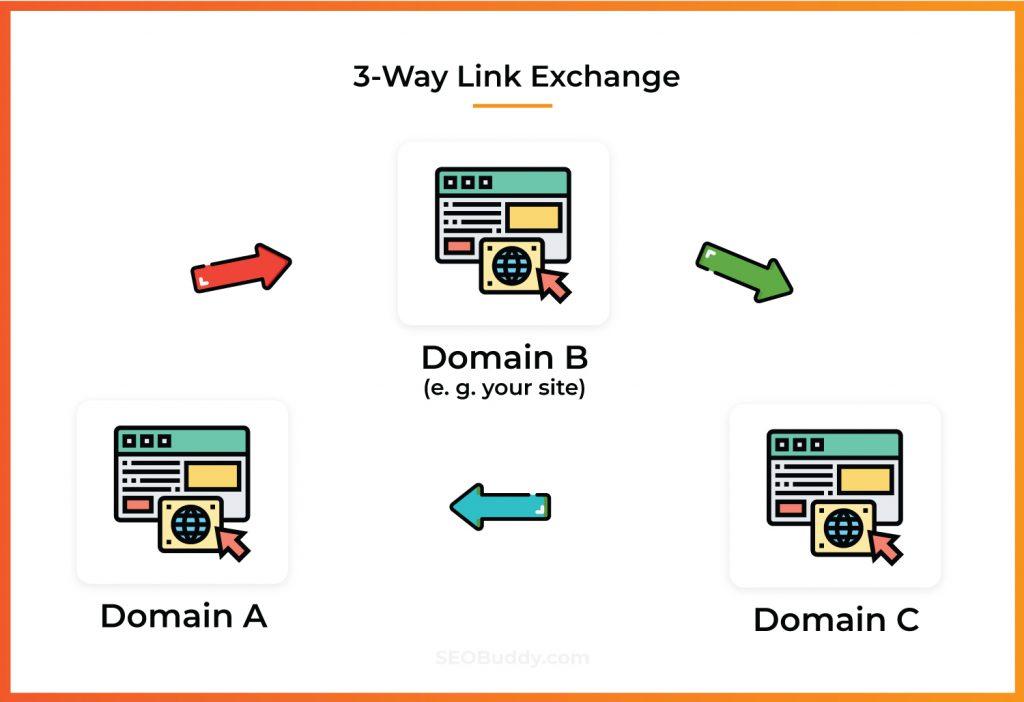Features section
Add advertising hereIn the ever-evolving digital landscape, where attention spans are fleeting and competition is fierce, the quest for visibility has never been more critical. One of the most potent strategies to enhance online presence lies in the subtle yet impactful art of link exchange. Far from being a mere technical maneuver,effective link exchange can open doors to new audiences,bolster credibility,and elevate search engine ranking. By understanding the intricacies of this collaborative approach,webmasters and marketers alike can strategically harness the power of connections to boost their reach. In this article, we will explore the principles of accomplished link exchange, its benefits, and practical tips to navigate this essential tactic in the digital marketing toolkit. Whether you’re a seasoned pro or just stepping into the realm of online optimization, the journey to expanding yoru reach begins here.
Table of Contents
- Understanding the Fundamentals of Link Exchange Dynamics
- Identifying Quality Partners for a Successful Link Exchange
- Crafting Compelling Content That Attracts Links Naturally
- Measuring Success: Analyzing the Impact of Your Link Exchange Strategy
- Q&A
- Key Takeaways
Understanding the Fundamentals of Link Exchange Dynamics
Link exchange is a strategic method that has gained traction for enhancing online visibility and boosting search engine rankings. At its core, the process revolves around two or more websites agreeing to share links to each other’s content, creating a web of connectivity that can significantly expand reach. To harness the full potential of link exchanges, it’s vital to consider the relevance, authority, and traffic potential of the sites involved. A successful link exchange should primarily focus on:
- Quality over Quantity: prioritize high-authority sites that resonate with your niche.
- Target Audience: Choose partners who attract a similar audience for maximum engagement.
- Content Relevance: Ensure the linked content is pertinent to enhance user experience.
Moreover, the dynamics of link exchanges are influenced by the ever-evolving landscape of search engine algorithms and user behaviour. Consequently, maintaining a balanced approach is essential. Establishing clear guidelines and expectations during negotiations can lead to a mutually beneficial outcome. Below is a simple table illustrating key factors that should be taken into account:
| Factor | Description |
|---|---|
| Domain authority | A higher score indicates a more reputable site. |
| Page Relevance | Pages should complement each other’s content. |
| Link Placement | Strategically place links within content for best results. |

Identifying Quality Partners for a Successful Link Exchange
involves a careful evaluation of potential collaborators. Start by defining the criteria that matter most to your brand’s ethos and goals. Look for partners within your industry, as this increases the relevance of the shared links. Consider the following aspects when assessing potential partners:
- Reputation: Check their domain authority and online presence to ensure they are reputable.
- Content Quality: Review the type of content they produce; it should be insightful and valuable.
- Audience engagement: Look for partners with active audiences who engage with their content regularly.
- Aligning Values: Ensure their brand values and mission align with yours to maintain a cohesive partnership.
Once you have identified potential partners, delve deeper into their metrics for further validation. Creating a simple comparison table can help clarify the strengths and weaknesses of each candidate. Here’s a speedy overview of what you may want to assess:
Featured section
Add advertising here| Partner Name | domain Authority | Content Type | Engagement Rate |
|---|---|---|---|
| partner A | 85 | Blog Posts | 5%+ |
| Partner B | 75 | Infographics | 7%+ |
| Partner C | 80 | Videos | 6%+ |
This approach allows for a structured method of choosing collaborators that will not onyl provide backlinks but also contribute positively to your visibility in the digital marketplace. Prioritize quality over quantity, focusing on fostering relationships that offer mutual benefits and long-term sustainability.
Crafting Compelling content That Attracts Links Naturally
Creating content that not only informs but also engages your audience is essential for driving organic links. To achieve this, focus on quality over quantity. Your content should provide real value—whether through informative articles, engaging infographics, or entertaining videos. Consider incorporating elements such as:
- Unique research or data that can’t be found elsewhere
- Personal stories that resonate with your readers
- Visual elements, like charts and images, that enhance understanding
Additionally, think about the structural approach to your content. Utilizing tables to present data clearly or breaking text into easily digestible chunks increases readability. For exmaple, a well-designed comparison table can succinctly illustrate your points, encouraging others to link back to your insights:
| Content Type | Engagement Level | Potential for Links |
|---|---|---|
| blog Posts | Medium | High |
| Infographics | High | Very High |
| Videos | Very High | Moderate |
By prioritizing engaging content and presenting it in a visually appealing way, you naturally invite others to link to your work, amplifying your impact across the web.

Measuring Success: Analyzing the Impact of Your Link Exchange Strategy
Measuring the effectiveness of your link exchange strategy is essential for optimizing your outreach efforts and discerning which partnerships yield the best results. By tracking key performance indicators (KPIs), you can gain insights into how well your strategy is functioning and identify areas for improvement. Consider focusing on metrics such as referral traffic,search engine rankings,and domain authority to help you assess your progress. These metrics provide a quantitative foundation for evaluating the impact of your link exchanges. In addition to metrics, gathering qualitative feedback can also be beneficial. Engage with your audience and partner sites to understand their perception of your content. Consider implementing a simple survey or feedback form to collect insights on the relevancy and quality of the links they encounter. This feedback can redefine your future link exchange strategy. To illustrate, you might create a table summarizing the benefits and challenges observed from your current exchange partnerships:
| partnership Type | Benefits | Challenges |
|---|---|---|
| Content Collaboration | Increased engagement, shared audiences | Time-consuming, requires clear interaction |
| Reciprocal Links | Mutual SEO benefits, cost-effective | Risk of penalization, varied quality |
| Guest Blogging | Expanded reach, authority building | Content quality control, potential saturation |
by systematically analyzing both quantitative and qualitative data, you can ensure that your link exchange efforts yield maximum return on investment while fostering valuable relationships in your niche.
Q&A
Q&A: Boost Your Reach – The Art of Effective Link Exchange
Q1: What is link exchange, and why is it important for online visibility? A1: Link exchange is a mutually beneficial arrangement between two websites, where they agree to provide backlinks to each other. This practice is crucial for online visibility as it enhances the credibility of both websites in the eyes of search engines and can significantly improve rankings. More backlinks mean more pathways for visitors to discover your content,ultimately broadening your reach.
Q2: How can I identify potential partners for link exchange? A2: Start by searching for websites within your niche that have similar audience demographics. Utilize online tools like Ahrefs, SEMrush, or even Google search to find sites with good domain authority and complementary content. Consider evaluating their existing backlinks to gauge their engagement and reputation. Building a list of potential partners who align with your values and audience will set the foundation for a fruitful exchange.
Q3: What are some best practices for initiating a link exchange proposal? A3: When reaching out, personalization is key. Craft a friendly, professional email that outlines who you are, your website’s goals, and why you believe a link exchange would be mutually beneficial. Highlight the value you can offer them—be it increased traffic, enhanced credibility, or access to your audience. Being transparent and straightforward fosters trust and increases the likelihood of a positive response.
Q4: Are ther any risks associated with link exchange? A4: Yes, while link exchanges can be beneficial, they also come with potential pitfalls. Engaging in excessive link swapping or partnering with sites that employ black-hat SEO tactics can lead to penalties from search engines. It’s essential to maintain a focus on quality over quantity and to ensure that your partner sites are reputable and relevant to your content.
Q5: How can I ensure that our link exchange remains effective over time? A5: Maintain open lines of communication with your linking partners. Regularly review the performance of the exchanged links using analytics tools to assess traffic and engagement. Be prepared to adjust your strategy as needed—whether it means refining the anchor text you use,updating outdated content,or even refreshing the partnership if necessary. Sustainability is key in keeping the momentum going.
Q6: What are some creative ways to promote link exchanges beyond traditional emails? A6: Consider hosting webinars, creating guest blogs, or participating in industry forums to foster relationships organically.Engaging on social media platforms—even through direct messages—can create a more personal touch. Collaborating on content such as case studies or co-branded resources can also naturally lead to link exchange opportunities while providing added value to both parties’ audiences.
Q7: In a rapidly changing digital landscape, how can I stay ahead with my link exchange strategy? A7: Keep an ear to the ground on SEO trends and algorithm updates from search engines. Regularly refresh your online content to ensure it stays relevant and valuable. Attend industry conferences, webinars, or join professional groups to network with others who can share experiences and insights about effective link exchange strategies.continuous learning and adaptation will position you as a leader in your niche.
Q8: Any final tips for those looking to boost their reach through link exchange? A8: Patience and persistence are your best allies! Building valuable relationships takes time, so stay consistent in your outreach efforts. Focus on creating high-quality, shareable content that naturally attracts links. Remember, it’s not just about exchanging links but forging partnerships that can drive long-term growth and credibility for both websites. Happy linking!
Key Takeaways
the world of link exchange is not simply a tactic but an art form that, when mastered, can significantly amplify your online presence. By understanding the nuanced dynamics of effective partnerships, you can craft connections that not only drive traffic but also enhance your credibility in an increasingly competitive digital landscape. As you embark on this journey, remember that authenticity and mutual benefit are the cornerstones of a successful link exchange strategy. Embrace the process with creativity and integrity, and watch your reach flourish. With the right approach, each link becomes not just a connection, but a bridge to new opportunities. So venture forth, build meaningful relationships, and let the world discover the value you bring to the table. Your digital network awaits!





